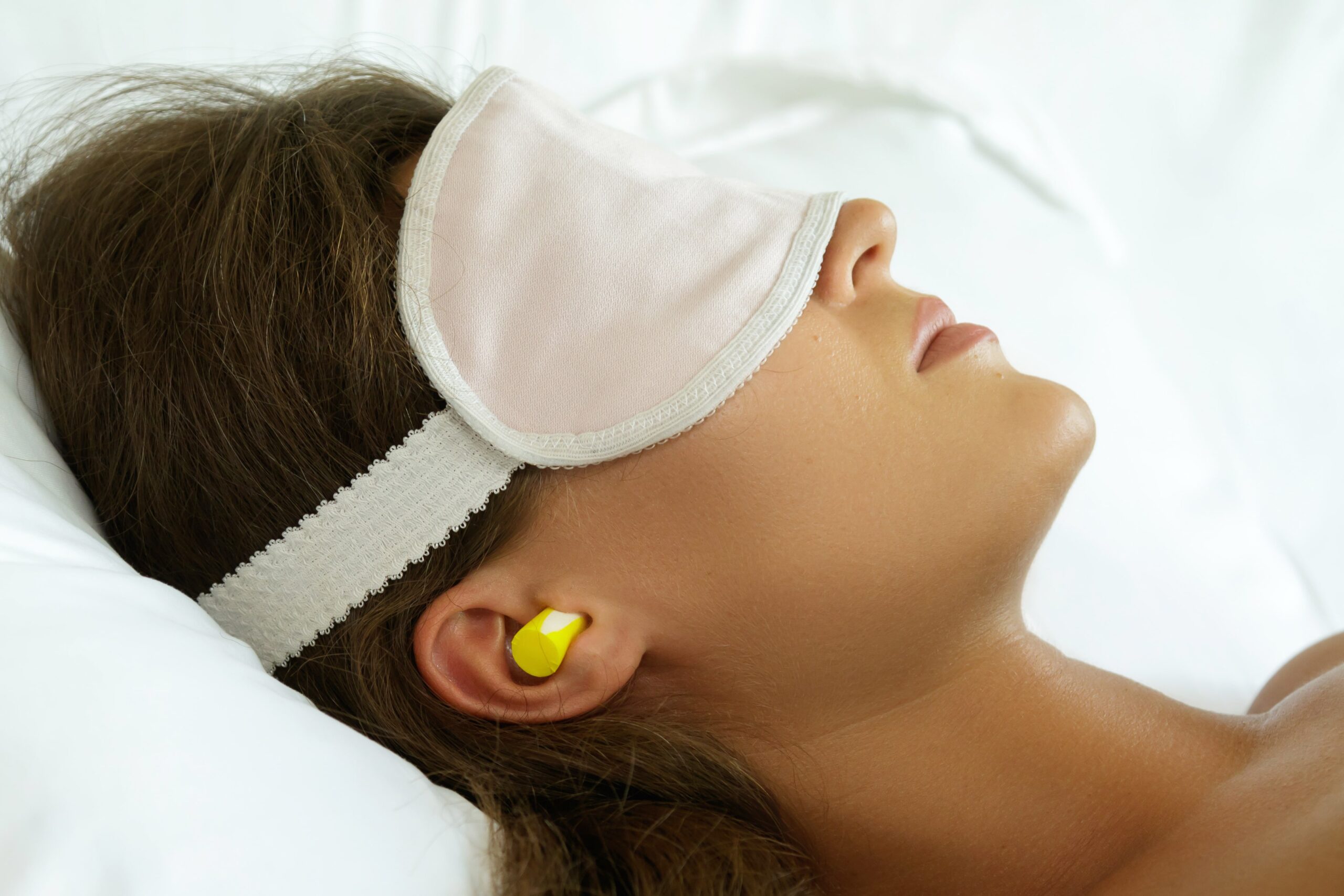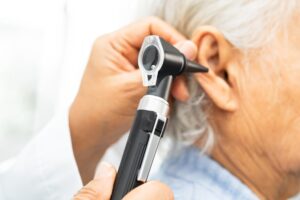Can you wear earplugs to sleep?
Yes, you can wear earplugs to sleep, but the more important question is, should you wear earplugs to sleep?
At Colorado Ear Care, we’ve devoted our careers to helping you and the rest of our community make safe, effective choices to better ensure that everyone in our care lives their lives with the best possible hearing health.
So let’s explore this topic in greater detail in order to truly understand if it’s really healthy to sleep while wearing earplugs every night.
Why do people want to wear earplugs to sleep?
The most common reasons that people are choosing to wear earplugs to sleep is because they are either light sleepers and easily disturbed by external stimuli, or because they are sharing a bed with a partner who snores.
Sometimes, of course, there are folks who are both light sleepers and share a bed with a partner who snores. Earplugs probably seem like the perfect solution.
And they definitely can be! At Colorado Ear Care, we actually offer custom-molded earplugs for those who need a little extra peace and quiet in order to fall and stay asleep in the midst of a noisy environment.
Considerations for those who choose to wear earplugs to sleep
For those folks out there who don’t have a treatable hearing loss, wearing earplugs to sleep can often be the most sensible option for you to get the rest that you need. Not getting proper sleep can also lead to other health issues, including the increased risk of hypertension, diabetes, heart attacks, and more.
You deserve to get the best possible night of sleep, so you might want to consider why you or your partner is such a noisy sleeper, especially if we’re talking about snoring.
Snoring is often associated with sleep apnea, which is when your airways become blocked during sleep, causing snoring, gasping, and will sometimes even cause a person to stop breathing for twenty to thirty seconds at a time.
Sleep apnea is often associated with other health conditions, such as asthma, heart attacks, strokes, and obesity. Undergoing a sleep study and appropriate recommended treatment by a sleep specialist can help the person suffering from sleep apnea, as well as the person suffering from the effects of their snoring.
Should hearing aid wearers wear earplugs to sleep?
As is the case with many recommendations that health professionals make, it really depends. If you have a certain level of hearing loss, odds are that you might not need to wear earplugs in order to fall asleep and get a good night’s rest.
Additionally, there are reasons why we would recommend that those who wear hearing aids all day long not wear earplugs to bed. Here are a few of them:
Your ears need rest
If you wear your hearing aids as recommended by your audiologist, then you might want to think twice about wearing earplugs to bed at night, too. Why? Well, there’s one simple reason: Your ears need rest.
Not only do you need a break from having a foreign object in your ears, which can sometimes create a sense of discomfort if you don’t give yourself regular periods of rest, but your body — including your ears — are likely to get hot and sweaty, especially if you’re trying to keep earplugs in your ears all night long.
Earplugs can prevent your ears from cleaning themselves
You’ve probably heard us say it over and over again, but you really shouldn’t be cleaning your ears with Q-Tips.
Allow us to say it again, because we know you’re probably going to anyway: Please do not “clean” your ears with Q-Tips.
We know that many people do this out of habit, and that habits can sometimes be really hard to break, but Q-Tips, much like earplugs, can often be very unhealthy for your ear and hearing health.
Why? Because they both push earwax, debris, and other buildup deeper into your ears. This can cause feelings of blockage in the ears, and can even diminish one’s ability to hear their best.
Another reason why it isn’t recommended to wear earplugs overnight if you’re also an all-day hearing aid wearer? The buildup of wax, oil, and debris, coupled with wearing earplugs overnight can possibly lead to ear infections.
These infections can affect your hearing, cause you pain, and if left ignored, can lead to even greater health risks.
Your ears are self-cleaning organs, and by leaving the Q-Tips out of your ears after the shower and earplugs out of your ears at night, you’re giving your ears the opportunity to naturally push wax and debris out of your ears.
However, if you’re someone who experiences an overproduction of earwax, or if you feel like you’re experiencing an unusual buildup of wax in your ears, then a professional ear cleaning is probably your best option. Colorado Ear Care offers this service, and can help your ears feel as clean and healthy as they should!
Wearing earplugs at night might be a safety concern for those with hearing loss
Though putting earplugs in your ears might help you fall asleep a little easier, they also might prevent you from hearing important sounds, like alarms, smoke or carbon monoxide detectors, your phone, or other devices designed to alert you or keep you safe.
That said, there are safety solutions for those who are hard of hearing, and, as recommended, do not wear their hearing instruments at night, such as alarms, doorbells, smoke and carbon monoxide detectors, baby monitors, and more.
Typically, these devices vibrate, illuminate, or emit a higher decibel sound at a lower frequency in order to alert the user.
So, is it okay to sleep with earplugs?
It all depends on your unique circumstances! For those with healthy hearing, wearing earplugs at night is typically just fine! For those with hearing loss who wear hearing aids, we’d recommend speaking with your audiologist to get the best recommendation for you!
Our team would be proud to serve you and your loved ones for all your hearing wellness needs.





